Getting on Track
Four questions with four post-doctorates after the inaugural WiSE Post-Doc Tenure Boot Camp
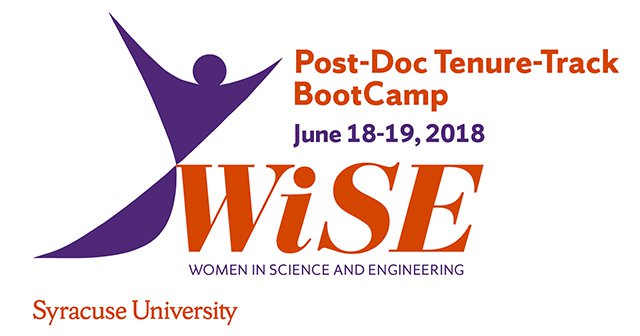
The first ever WiSE (Women in Science and Engineering) Post-Doc Tenure-Track Boot Camp kicked off on campus this past June, bringing together more than two dozen post-doctoral associates and senior doctoral students. The two-day interactive workshop was developed to provide uncommon training for those in the beginning of an academic job search and who are currently in their post-doctoral period. Topics of the symposium included preparing for the academic job search, crafting and using Individual Development Plans, best practices in writing research and teaching statements, negotiating strategies for salary, and advice on how to successfully navigate the tenure-track process.
The event was sponsored by WiSE and the College of Arts and Sciences’ Associate Dean for Research and Scholarship Faculty Affairs and the Graduate School within the Office of Academic Affairs.
Sharon Alestalo, Program Director for WiSE and Faculty Affairs, says the inaugural event was a great success and strengthened that this type of training is vitally essential for people in this stage of their careers.
“Largely the feedback has been very positive; especially in terms of various aspects of the job search, grant writing, and key skill areas such as negotiation,” explained Alestalo. “Almost all participants either agreed that their confidence in conducting a successful job search has increased as a result of attending.”
The A&S News staff caught up with 4 of the Post-Doc Tenure-Track Boot Camp participants to see how they are reflecting on their own experiences with the workshops and how they are moving forward after this year’s event.
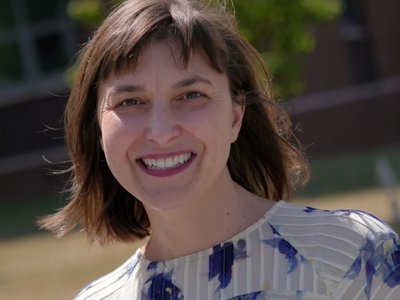
Steluta Dinca G’10
Research Assistant Professor in the Department of Chemistry at Syracuse University
What has been the focus of your research so far?
My research explores novel materials and the experimental science required to understand their function, guided by the goal of enabling sustainable capture, conversion, and storage of energy. In particular, my work is aimed at building a fundamental understanding of the mechanisms that control charge carrier transport in amorphous or polycrystalline semiconductors, and organic materials, namely polymers. In spite of the lack of a detailed theoretical understanding, these materials are the basis of many exciting renewable energy technologies.
What was the biggest take-a-way for you personally having participated in the WiSE Post-Doc Tenure Bootcamp?
Professor Karen Kashmanian Oates has reminded me of something that I learned as kid, but had forgotten about: “Do not burn bridges-you never know when you will need to cross them again”. It means we should always leave any situations (such as changing jobs, interviewing, attending seminars and conferences, etc.) in good standing. Why? Because those same people that we interact with might one day be in a position to decide or influence our future career or might need to ask them for a letter of recommendation in the future.
What surprised you the most? Did you learn anything that you had wished you knew during your student academic career?
If I must name one new “thing” that I learned at the WiSE Post-Doc Tenure Bootcamp is the importance of having an individual development plan (IDP) or SMART goals (specific, measurable, action-oriented, realistic, time bound) at any stage in our academic careers. Currently, I am working on writing/developing my IDP. I believe that having one will help me consider and identify my skills and objectives in a clear way.
What advice would you impart to students looking to forge the same academic path?
My advice is to remember that a postdoc is a training experience. To get the best of this training you must be excited about the scientific goals of your project. Nevertheless, take advantage of the career-planning opportunities we have here at Syracuse University or at conferences, both for your own development and for networking possibilities. Define your short and long-term goals. Work towards achieving one short-term goal and once you reach it, reward yourself, and then move on reaching the next goal. Move ahead fearlessly!
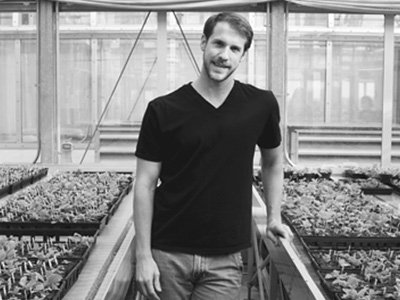
Matthew Rubin
Research Assistant Professor in the Department of Biology at Syracuse University
What has been the focus of your research so far?
My research aims to understand the genetic environmental factors that influence trait expression, the developmental mechanisms responsible for perception and integration of environmental signals and the amount of phenotypic variation and plasticity present in quantitative traits. My current research using the model plant, Mimulus guttatus (yellow monkey flower), examines the role of environmental and genetic factors on major life history transitions, including germination and flowering, and variation in allocation to sexual and clonal reproduction and the contribution of each mode of reproduction to lifetime fitness.
Why did you participate in the WiSE Post-Doc Tenure Bootcamp?
By participating in this workshop, I hoped to gain insights into the entire academic career process from applications, interviewing and negotiating positions.
What was the biggest take-a-way for you personally having participated in the program?
I think this program reinforced many core ideas, including the importance of seeking out opportunities that fit with your future goals. By constructing an application that truly reflects the type of educator and researcher you are, it conveys to a potential employer your excitement for the position.
What surprised you the most? Did you learn anything that you had wished you knew during your student academic career?
I think what was most surprising to me was how variable the application process can be across disciplines. There was a wide range of specialties represented by the participants of the workshop and hearing about how they put together an application was very interesting. It provided great ideas on how to put together our own applications.
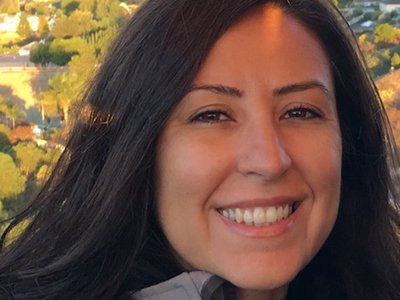
Gonca Erdemci-Tandogan
Postdoctoral Associate in the Department of Physics at Syracuse University.
What has been the focus of your research so far?
I study biological physics using theory and computational techniques. Currently, at Syracuse University, I have been investigating the physical mechanisms underlying the tissue and organ formation.
Why did you participate in the WiSE Post-Doc Tenure Bootcamp?
Given my goals and the current career stage, I think it was good timing for me to learn the tenure-track application procedure in details.
What surprised you the most? Did you learn anything that you had wished you knew during your student academic career?
The crucial role of teaching experience. As a graduate student, we are exposed to some teaching experience through the opportunities of being a teaching assistant. However, I have learned during this workshop that this experience may not be enough for various tenure-track positions.
What advice would you impart to students looking to forge the same academic path?
These types of workshops can increase the perception of students on job application procedures early on. Even though students in some fields do not need to prepare all the documents required for a tenure-track job application yet, they can definitely start putting together ideas for their research statements, learning about active learning techniques and more. I think this would make their jobs much easier and their application much stronger by the time they apply for a tenure-track position.
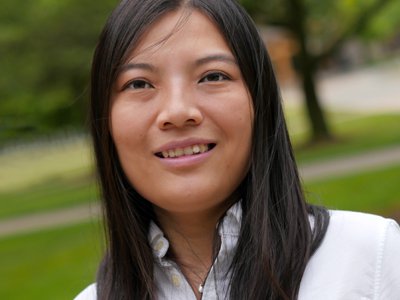
Huan Gu G’14
Assistant Research Professor in the Department of Biomedical and Chemical Engineering at Syracuse University.
What has been the focus of your research so far?
My current research focus on developing novel technologies for the understanding and control of multi-drug resistant bacteria-associated issues such as persistent fouling and infections.
What was the biggest take-a-way for you personally having participated in the program?
I feel that I can improve my future applications and prepare for my academic career.
What surprised you the most? Did you learn anything that you had wished you knew during your student academic career?
What surprised me the most was that some of the strategies I used in my past applications could be wrong, or may have had negative impact on my applications. For example, I should not mention a collaboration with another researcher who I haven't spoken with in my application.
What advice would you impart to students looking to forge the same academic path?
Know the milestones of your applications, or career, and start early.
